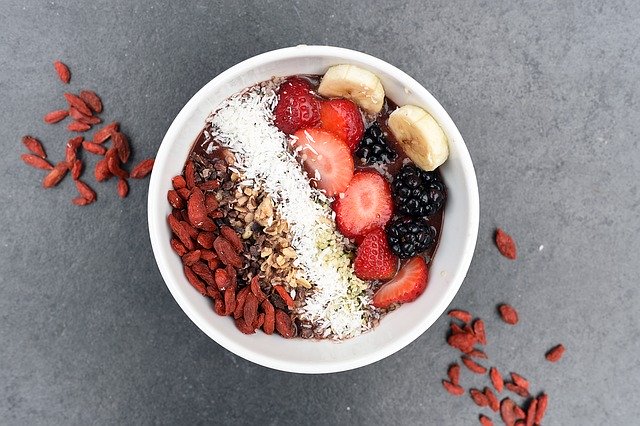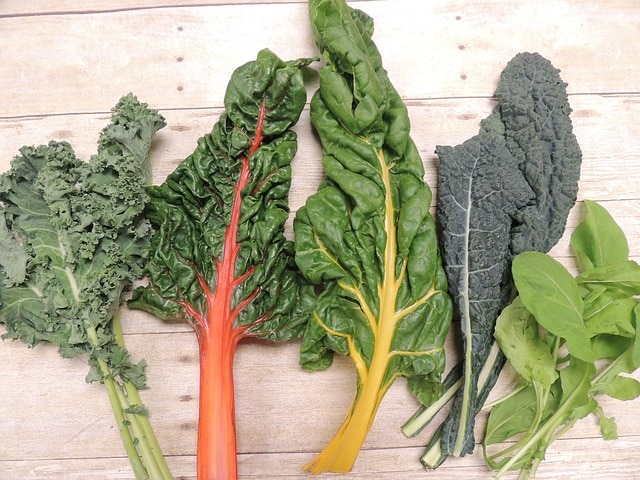The digestive system or the ‘gut’ has been revered since ancient times as the center of health and disease. It is the epicenter of your wellbeing because of its wide ranging involvement in vital processes. It breaks down food into simple nutrients and delivers them to the body, regulates your hormones and is the main channel for excretion, so maintaining the health of your gut is absolutely essential.
The gut houses 70% of the body’s immune system, with the gut microbiota playing a dominant role in immune health. Poor gut health shows up in gastrointestinal problems but may also be the cause of serious conditions like diabetes, autoimmune disorders, arthritis, depression and chronic fatigue syndrome.
In Ayurveda, the stomach and digestive system are believed to be the seat of all health issues and any imbalance here may cause illnesses or even affect mental health. Many diseases that may seem totally unrelated to the gut are now increasingly believed to be caused or worsened by gut problems.
How do I determine my current gut health?
When your gut is not working optimally, you will experience a general sense of malaise and uneasiness. Your body will let you know that your gut in unhealthy with the following symptoms:
- Heartburn
- Excessive fullness
- Excessive burping
- Nausea
- Rumbling stomach noises
- Bloating
- Abdominal pain
- Altered bowel habits
These symptoms are usually mild and may cause only a minor feeling of discomfort. It is also not uncommon for someone with a healthy gut to experience any of the above now and then. However if you cannot resolve them over a few weeks, it may be a good idea to see a medical professional.

Conversely there are signs that indicate good gut health. The two primary factors are:
Farts: While farts may be embarrassing, passing gas is a sign of an optimally functioning gut. It is when the wind is trapped, leading to bloating, fullness and pain that you should be worried. Do note however that passing excessive wind (more than 20 a day) or noticing a particularly bad smell can indicate problems.
The perfect poop: Your poop is an excellent indicator of the state of your gut. Pooping anytime between 3 times a week to 3 times a day is considered normal. You can also look the state of your poop to know how everything is functioning inside.
Is there a gut health diet that I can follow?
CSIRO (Commonwealth Scientific and Industrial Research Organisation) designed a diet that includes a high-fibre, high-protein and low GI menu plan to mitigate and eliminate the symptoms of an unhealthy gut.
Eating for the benefit of your gut health does not mean that you have to starve or eat only salads. You’ll be eating filling and satisfying ingredients like cereal and whole grains, oats, lentils, chickpeas, red kidney beans, potatoes and all kinds of delicious seasonal fruit.

The focus on fibre means that the diet offers the following benefits in addition to gut health:
- Lowering cholesterol by removing lipids from the blood vessels
- Maintaining blood sugar levels by lowering glycemic index
- Increasing feelings of satiety and decrease energy absorbed from food leading to weight loss
- Feeding good bacteria for efficient release of gut hormones improved wellbeing
- Promoting regularity of bowel movements
- Conrolling appetite and boosting fat loss
Will a gut cleanse improve my gut health?
A gut cleanse can do wonders for your gut. An ideal cleanse focuses on eliminating foods that aggravate gastrointestinal health and adding gut-friendly foods. This includes eating unprocessed and unrefined foods while adding some gut-friendly supplements.
A good gut cleanse offers big benefits to the gut:
- ‘Heals and seals’ the internal lining of the gut
- Improves the quality and quantity of good gut bacteria through probiotics and prebiotics
- Provides fibre for bowel health

How do you know when to do it? These symptoms could indicate that you might benefit from a gut cleanse:
- Constantly feeling moody, depressed or anxious
- Feeling regularly stressed and anxious
- Suffering from bloating, constipation, diarrhea, pain or excessive gas
- Having sugar cravings all the time
- Falling sick every now and then
- Unexplained and sudden food intolerances
Consider a gut cleanse once or twice in a year. If you have recently taken a course of antibiotics, it may be a good time to do a gut cleanse. Antibiotics kill the healthy bacteria in your gut and a cleanse will help replace them. You might also choose to do a cleanse after the holiday season or if you’ve returned from vacation. All the indulgent food and alcohol that you have consumed can be flushed out and your gut lining will be refreshed and able to operate at optimum capacity.
Here are some dietary recommendations to cleanse your gut:
Foods to include:
- All fresh seasonal vegetables, especially greens like broccoli, Brussels sprouts, kale, collard greens, cabbage and cauliflower
- All fresh seasonal fruit
- All fresh sprouts
- All fresh herbs and spices, especially ginger and tumeric
- Unsweetened almond milk, rice milk or coconut milk
- Fermented foods
- Apple cider vinegar
- Gluten free grains
- Chicken, eggs, fish, turkey
- Avocado, extra virgin olive oil, raw nuts and seeds (including psyllium husk), nut butters, coconut oil
- Herbal tea and green tea

Foods to avoid:
- Dairy
- Gluten
- Deli meats, red meat, bacon, sausages
- Processed/ refined foods
- Sugar, sweets, milk chocolate, jams, fruit spreads
- Hot chips, burgers, fried foods
- Alcohol, coffee, soft drinks
What you need to know before doing a cleanse for gut health
A gut cleanse can last anywhere between two weeks (for a regular cleanse) to a few months (to help major health conditions).
If you have any current medical conditions, are pregnant, or are taking medicines, it is advisable to consult your medical practitioner before you start a cleanse. If you experience any pain or discomfort during the cleanse, seek medical help. Never banish any food group from your diet for a long-term without medical consultation.
If you currently eat a high-sugar, low-vegetable diet, you may experience fatigue, a change in bowel motions, mental fogginess and skin eruptions. These symptoms tend to subside after three to five days.
What is the link between the gut bacteria and gut health?
Your digestive system is home to over 1000 different strains of microbes. Decades of research has revealed that richer and more diverse the bacteria, the healthier and more resilient the body. When our microbiome is not balanced, our immunity suffers, we gain weight and become susceptible to chronic diseases and illness.
The healthy microbes help us out in the followings ways:
- They directly attack infections caused by ‘bad’ bacteria and viruses
- They aid digestion
- They make certain vitamins
- They create neurotransmitters such as serotonin, the happy hormone
- They help regulate stress levels in the body

Now that we know that not all bacteria are bad, it is imperative that we take care of the good bacteria while driving out the bad ones. The food that we eat is the fuel for bacterial colonies in our gut and determines which ones thrive and which perish. The following measures ensure a healthy balance of bacteria as well as optimal gut health:
- Eat high-fibre foods to help your digestive system process meals faster and more effectively.
- Eat fermented foods such as kimchi, kefir, kombucha, yogurt to add more probiotic bacteria to your system
- Avoid antibiotics as far as possible: Antibiotics kill all gut bacteria and do not discriminate between good or bad.
Other than a gut health diet, what measures can I take for optimal gut heath?
What you eat and drink is the primary factor that affects your gut, but lifestyle choices habits can impact your gut as well as your overall sense of wellbeing. You might be able to implement some of these measures in order to achieve a robust gut:
Take probiotics every day
The benefits of probiotics are still being debated but an article by Harvard Health Publishing offers some statistics. Regardless of the findings, probiotics are considered safe to consume (unless you have impaired immune function) and is easily available through natural ingredients or fermented foods.
Stay hydrated
Hydration is key to optimal digestion and as strong well-functioning gut. By drinking enough water, you will enable your system to flush out toxins and make place for the right bacteria to flourish.
Get off the couch
Moving around ensures blood flow to the gut while strengthening the muscles. Any form of exercise is beneficial to your system and indirectly affects your gut health.
Chew slowly
While eating, try to chew every mouthful around 30 times before you swallow. This ensures proper and timely breakdown of food so that your body can assimilate it easily. This is why we are often told to focus on our food at meal times and not watch TV or read.
Limit your alcohol intake
Alcohol irritates the lining of the gut and dehydrates the body, causing a negative impact on the bacteria in your system.
Manage stress
Stress is known to thin the lining of the gut and can cause upsets of your digestive function. It also disrupts the gut microbe composition of your system.
Get enough sleep
When you sleep well, your system gains the time it needs to process and complete all functions adequately. Try to get 7-9 hours of sleep so that your gut remains healthy and your microbial ecosystem can thrive.
Have a pet
While this sounds strange, pets produce their own microbiomes which are then spread to you. These good bacteria are very helpful for the health of your gut.
Avoid overusing antibacterial products
When you sterilize every bit of dirt in the house, you are also getting rid of the good bacteria. In addition your body becomes accustomed to sterile surroundings and will not be able to fight off infections later.
Looking after your gut health is a lifestyle change that can be fun too. It requires you to eat good food, let go of stress, play in the park with your pet, let the housework pile up sometimes, and don’t sweat the small stuff!

If you would like to consult a nutritionist near you, Avaana can help you find one.



